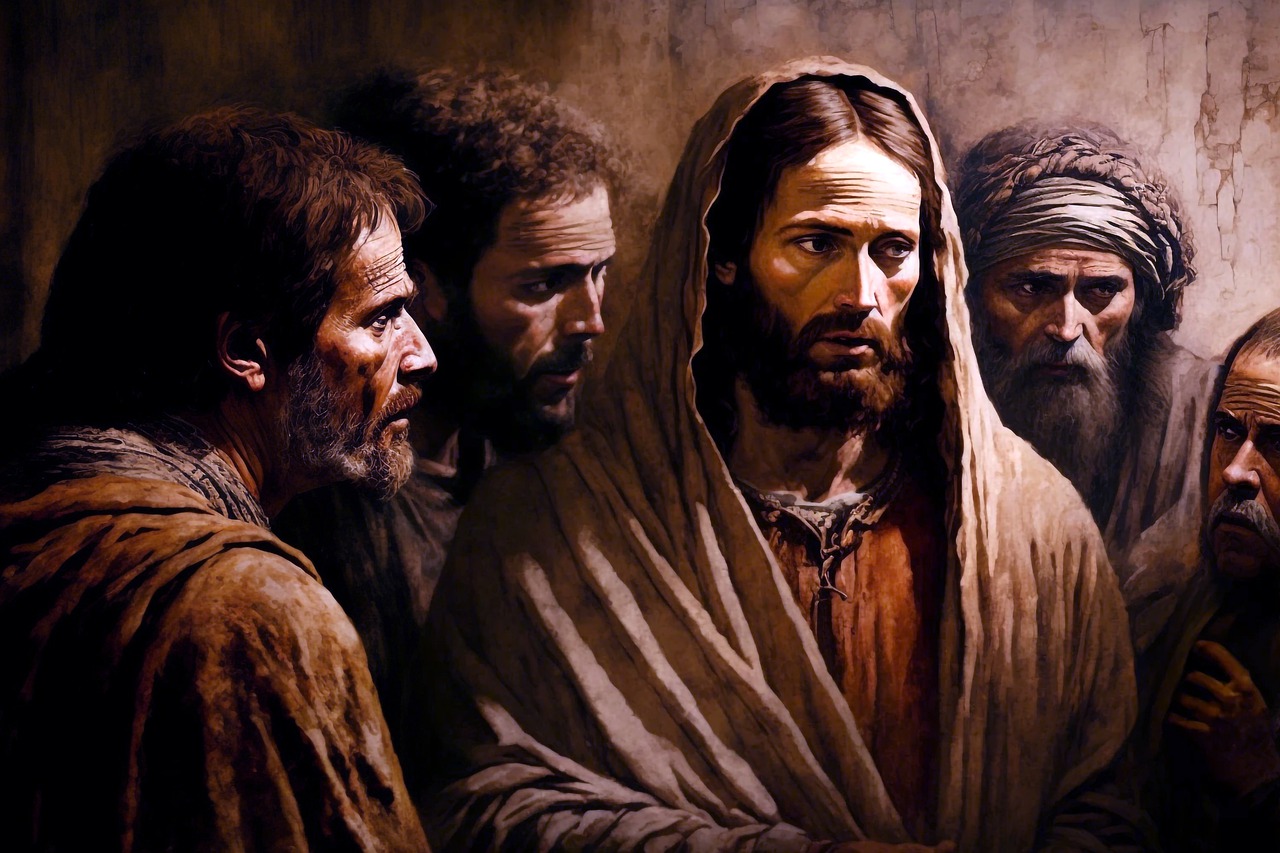Summary of Job 11
Job 11 provides insights into the dialogue between Job and his friend Zophar. In this chapter, Zophar rebukes Job, urging him to repent and seek God’s forgiveness. Zophar accuses Job of arrogance and reminds him of God’s wisdom and power. The chapter ends with Zophar urging Job to put away wickedness and embrace righteousness.
In the midst of Job’s suffering and questioning, Zophar’s words serve as a reminder that God is just and righteous. Zophar believes that Job’s suffering is a result of his sin and that repentance is necessary for restoration. This chapter sets the stage for the ongoing discussion between Job and his friends, exploring the themes of suffering, repentance, and the nature of God’s justice.
Prophetic and Symbolic Elements in Job 11
Job 11 foreshadows the coming of Messianic Jesus through its emphasis on repentance and righteousness. The dialogue between Job and Zophar symbolizes the struggle between human understanding and divine wisdom. Zophar’s words serve as a reminder of God’s sovereignty and His ability to bring justice and restoration.
In the context of the book of Job, Zophar’s words carry prophetic significance. They point to a future time when a perfect Mediator, Advocate, and Redeemer will come. Zophar’s rebuke and call for repentance echo the need for sinners to turn to God and seek forgiveness.This foreshadows the role of Jesus as the ultimate mediator between God and humanity, who would intercede on behalf of believers and bring redemption through His sacrificial death on the cross.
Connection between Job 11 and Messianic Jesus
Job’s longing for a Mediator, Advocate, and Redeemer mirrors the role of Jesus as the mediator between God and humanity. Job’s desire for someone to plead his case with God finds fulfillment in Jesus’ intercession on behalf of believers. Job’s faith in a Redeemer who would deliver him from suffering foreshadows Jesus’ redemptive work on the cross.
The connection between Job 11 and Messianic Jesus lies in the shared theme of intercession and redemption. Job, in his suffering and longing for someone to represent him before God, foreshadows the role of Jesus as the ultimate intercessor and the perfect Mediator between God and humanity. Just as Job expressed his hope in a Redeemer who would deliver him from suffering, Jesus fulfilled this hope through His sacrificial death and resurrection, offering redemption and salvation to all who believe in Him.
Connection between Job 11 and the Gospel
Job 11 aligns with the central message of the gospel by emphasizing the need for repentance, righteousness, and trust in God’s mercy. The chapter highlights the importance of turning away from wickedness and embracing a life of faith and obedience, which is central to the gospel message. The transformation and restoration that Job longs for find ultimate fulfillment in the salvation offered through Jesus Christ.
The connection between Job 11 and the gospel lies in the shared theme of repentance and the need for salvation. Zophar’s rebuke to Job echoes the call of the gospel to turn away from sin and embrace righteousness through faith in Jesus Christ. The chapter emphasizes the importance of trusting in God’s mercy and embracing a life of obedience to His commandments, which is central to the gospel message. The transformation and restoration that Job longs for find their ultimate fulfillment in the salvation offered through Jesus Christ.
Job as a Type of Christ
Job serves as a type of Christ through his innocent suffering and righteous character. Job’s intercession for his friends reflects Jesus’ role as the ultimate intercessor for humanity. Job’s ultimate exaltation and restoration mirror Jesus’ victory over sin and death.
Job’s innocent suffering and his unwavering faith in God’s justice and righteousness make him a foreshadowing figure of Christ. Just as Job interceded for his friends and sought their forgiveness, Jesus, as the ultimate intercessor, intercedes for all believers and offers forgiveness and reconciliation with God. Job’s ultimate exaltation and restoration, after enduring immense suffering, mirror Jesus’ victory over sin and death through His resurrection. Job’s story serves as a powerful reminder of the redemptive work of Christ and the hope we have in Him.
Messianic Hope in the Old and New Testament
Isaiah 11 provides a prophetic description of the Messiah, including his lineage, attributes, and the peace and transformation he brings to the world.The cleansing of the Temple in the Gospel of Mark serves as a symbolic act by Jesus, reflecting the judgment on the religious authorities and the need for true worship and repentance.Jesus’ words in Matthew 11 arouse Messianic hope in the hearts of the people, confirming that he is the long-awaited Messiah they were seeking.
The Old Testament prophesies and foreshadows the coming of the Messiah, providing hope for the redemption and restoration of God’s people. Isaiah 11 presents a vivid description of the Messiah, emphasizing his lineage from the root of Jesse and his attributes of wisdom, understanding, and righteousness. The passage also speaks of the peace and transformation that the Messiah will bring to the world, reflecting the hope and longing for a Savior.
In the New Testament, the Gospel of Mark records Jesus cleansing the Temple, a symbolic act that reflects the judgment on the religious authorities and the need for true worship and repentance. This act demonstrates Jesus’ authority and his role as the Messiah who came to bring about spiritual renewal and restoration.
Jesus’ words in Matthew 11 further arouse Messianic hope in the hearts of the people, confirming that he is the long-awaited Messiah they were seeking. Through his teachings, miracles, and fulfillment of Old Testament prophecies, Jesus embodies the Messianic hope and brings salvation to all who believe in him.
Conclusion
Job 11 offers a profound insight into the prophetic and symbolic links between the Old Testament, Messianic Jesus, and the gospel. Understanding these connections deepens our appreciation for the overarching narrative of God’s redemptive plan. By recognizing Job’s foreshadowing of Christ and the gospel message, we can find hope, encouragement, and a deeper faith in God’s ultimate plan for salvation. The dialogue between Job and Zophar, the longing for a Mediator and Redeemer, and the themes of repentance and righteousness all point to the fulfillment of these hopes and desires in Jesus Christ and His redemptive work on the cross. Through Job’s story and the Messianic prophecies in the Old Testament, we can see the intricate tapestry of God’s plan for salvation woven throughout the Scriptures.
#Job11 #Zophar’scounsel #Repentance #Messianicprophecy #JesusChrist #Gospel #Biblicalsymbolism #OldTestament #Faith #Forgiveness #Spiritualinsight #Scripture #Christianity #Salvation #Prophecyfulfillment #Repentanceandredemption #Biblicalteachings



